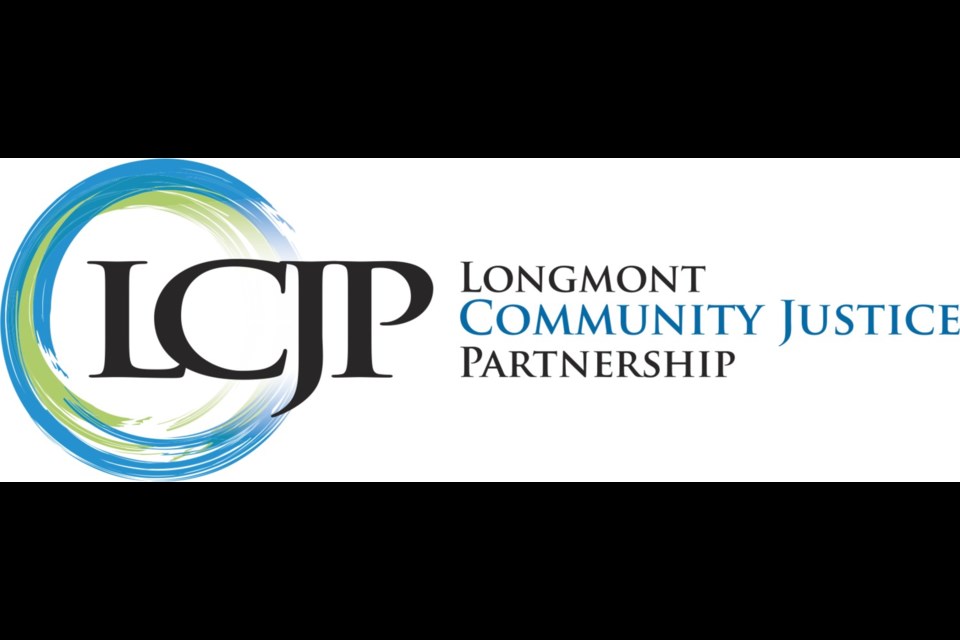Longmont has a national reputation for having one of the most successful restorative justice programs in the country. It works under the auspices of the Longmont Community Justice Partnership, or LCJP, whose mission statement is to “build community through collaborative and inclusive restorative practices and give(s) people the opportunity to heal and create justice in their community and the world.”
In practice this means working with mostly juvenile misdemeanor offenders to prevent them from potentially becoming repeat offenders.
The program brings together people from the community who want to help with the process. Parents, school representatives, police officers, social workers can all be involved, as well as representatives of harmed parties and specially trained volunteers. Offenders must first take responsibility for their actions and after in-person restorative conference sessions have taken place, participants work with offenders to draw up contracts. Contracts might include community service or restitution payments, and usually include letters of apology or reflection, or even analysis of what careers or future paths offenders want to pursue.
With an over 90% success rate following the restorative justice process, how have the restrictions presented by COVID-19 been tackled by the LCJP? Executive Director Kathleen McGoey said she and her staff had to begin working from home on March 16 and their first priority was to plan and prepare for how they could shift procedures to virtual platforms so case referrals could keep moving forward.
The last in-person session was held on March 4, and the first video conference was April 13. A lot of work was necessary during those four weeks, guided by the mammoth task of designing a digital platform that would uphold the integrity of the restorative justice process and be accessible to those not familiar with video conferencing, or perhaps even the digital world.
The three tasks that were most demanding during the transition from in-person to digital, according to McGoey, were:
-
Ensuring confidentiality of the process.
-
Sufficient training and preparation so volunteers could feel confident leading virtual conferences.
-
Getting creative in using technology in ways it might not have originally been intended. In other words, getting creative with technological workarounds.
Another task that needed to be addressed was work on cases already scheduled for an in-person restorative conference, and to reassure participants their cases would not be dropped but would continue with the Zoom alternative. Recognizing people’s behavior changes when they are at home also had to be taken into consideration. Although people are more relaxed at home, they also are more likely to be distracted, and LCJP volunteers leading conferences were trained to be aware of this and in ways to keep the process on track, McGoey said.
To date, there have been 16 virtual restorative justice conferences, with more on the June schedule. Twenty-two “responsible persons “— the preferred term for offenders — have gone through the video conferencing process, and every conference has had a Public Safety representative present. McGoey said she has been particularly impressed and appreciative that, despite the challenges of COVID-19 and the current climate of unrest, police officers have participated in 100% of the conferences.
Clients, both responsible and harmed parties, have reported high levels of satisfaction with the virtual process, particularly because their cases were not put on “pause” by COVID restrictions, McGoey said.
As with so many other areas of civic life, the closure of courts has meant a backlog of cases, but McGoey said she strongly believes restorative justice has pushed forward in a timely and responsible manner.
McGoey and her volunteers are aware there are new sources of tension within households these days and she said clients have shared their deep appreciation for help with conflict-resolution skills and connection to community resources. If families are struggling with finances, food or violence, restorative justice gives them a place to voice their experiences and can then connect them with resources.
McGoey said the learning experiences of taking the program virtual will be useful in the future in streamlining administrative processes, saving time and money. In-person meetings will always be the first choice, but she said she is happy to know virtual meetings can be successful.
A difficult transition in a difficult time has worked well for the restorative justice program and all its participants, she said.
McGoey describes her volunteer community members and facilitators as “absolutely amazing” and said she is impressed “so many dedicated people have been motivated to try something new, even if it is difficult and uncomfortable. The whole program is deeply grateful for the willingness and courageous commitment our volunteers have made to building community resilience.”



